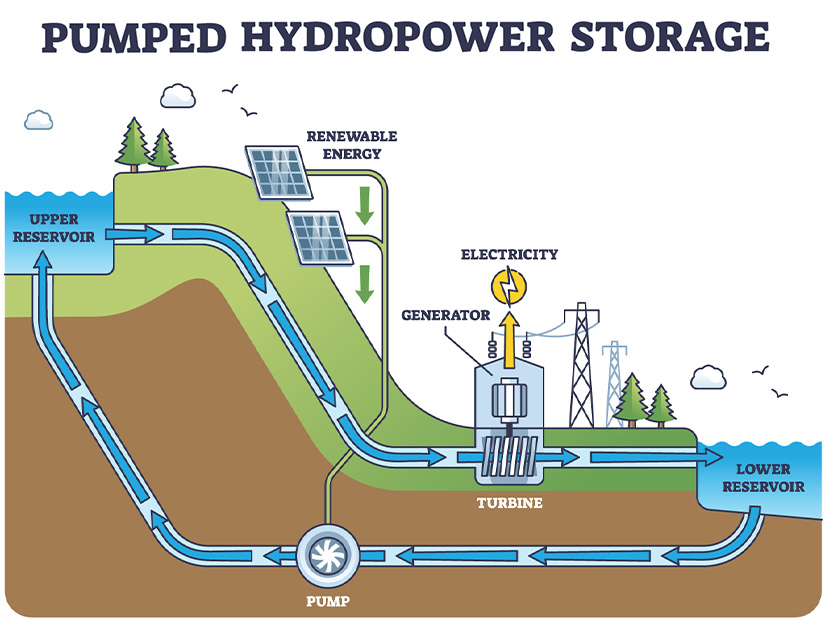this post was submitted on 29 Sep 2024
108 points (97.4% liked)
Science
23489 readers
1 users here now
Welcome to Hexbear's science community!
Subscribe to see posts about research and scientific coverage of current events
No distasteful shitposting, pseudoscience, or COVID-19 misinformation.

founded 5 years ago
MODERATORS
you are viewing a single comment's thread
view the rest of the comments
view the rest of the comments


I've also seen a version of this that uses an electric locomotive that moves a big weight up and down a slope.
Personally I think we should put big weights on pulleys in every high rise, like a grandfather clock.
You had me at "locomotive". Name it Sisyphus.
How big? Seems like you would need quite a bit of weight to store any useful amount. Using this calculator: https://www.calculatorsoup.com/calculators/physics/gravitational-potential.php and assuming my values are right, if you had something the size of a bus (16,000 kg) pulled up through something as tall as the Empire State Building (380 m roof height), you'd get about 16.56 kWh, which isn't all that much. I think a typical EV battery size is about 40 kWh in comparison. With hydro storage on the other hand, you can store a shit ton of water in a reservoir without any major constraints besides the overall size, which is massive.
Plus side if youre in a rainy region you get extra energy
That's a good idea. They already have shafts that have the capacity for big weights as well
How To Make Buildings Into Batteries
https://piped.video/watch?v=oCv3ygvEjFo
That link isn't working for me:
Edit: is it this one? https://youtu.be/oCv3ygvEjFo
I found a YouTube link in your comment. Here are links to the same video on alternative frontends that protect your privacy:
Could the weight be integrated with a tuned mass damper?